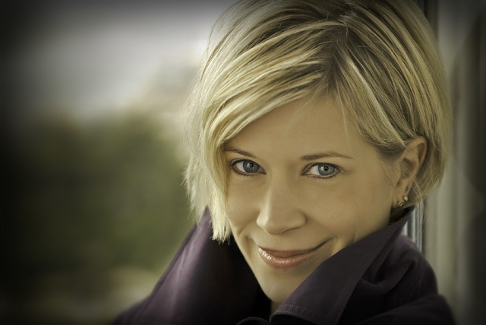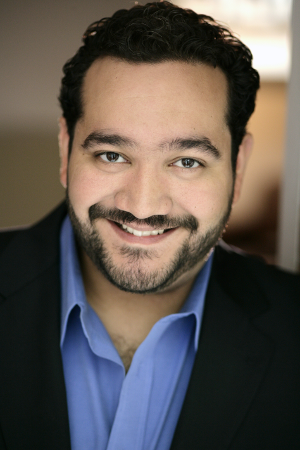Recently in Performances
English Touring Opera are delighted to announce a season of lyric monodramas to tour nationally from October to December. The season features music for solo singer and piano by Argento, Britten, Tippett and Shostakovich with a bold and inventive approach to making opera during social distancing.
This tenth of ten Live from London concerts was in fact a recorded live performance from California. It was no less enjoyable for that, and it was also uplifting to learn that this wasn’t in fact the ‘last’ LfL event that we will be able to enjoy, courtesy of VOCES8 and their fellow vocal ensembles (more below …).
Ever since Wigmore Hall announced their superb series of autumn concerts, all streamed live and available free of charge, I’d been looking forward to this song recital by Ian Bostridge and Imogen Cooper.
Although Stile Antico’s programme article for their Live from London recital introduced their selection from the many treasures of the English Renaissance in the context of the theological debates and upheavals of the Tudor and Elizabethan years, their performance was more evocative of private chamber music than of public liturgy.
Evidently, face masks don’t stifle appreciative “Bravo!”s. And, reducing audience numbers doesn’t lower the volume of such acclamations. For, the audience at Wigmore Hall gave soprano Elizabeth Llewellyn and pianist Simon Lepper a greatly deserved warm reception and hearty response following this lunchtime recital of late-Romantic song.
For this week’s Live from London vocal recital we moved from the home of VOCES8, St Anne and St Agnes in the City of London, to Kings Place, where The Sixteen - who have been associate artists at the venue for some time - presented a programme of music and words bound together by the theme of ‘reflection’.
'Such is your divine Disposation that both you excellently understand, and royally entertaine the Exercise of Musicke.’
‘And there was war in heaven: Michael and his angels fought against the dragon; and the dragon fought and his angels, And prevailed not; neither was their place found any more in heaven … that old serpent … Satan, which deceiveth the whole world: he was cast out into the earth, and his angels were cast out with him.’
There was never any doubt that the fifth of the twelve Met Stars Live in Concert broadcasts was going to be a palpably intense and vivid event, as well as a musically stunning and theatrically enervating experience.
‘Love’ was the theme for this Live from London performance by Apollo5. Given the complexity and diversity of that human emotion, and Apollo5’s reputation for versatility and diverse repertoire, ranging from Renaissance choral music to jazz, from contemporary classical works to popular song, it was no surprise that their programme spanned 500 years and several musical styles.
The Academy of St Martin in the Fields have titled their autumn series of eight concerts - which are taking place at 5pm and 7.30pm on two Saturdays each month at their home venue in Trafalgar Square, and being filmed for streaming the following Thursday - ‘re:connect’.
The London Symphony Orchestra opened their Autumn 2020 season with a homage to Oliver Knussen, who died at the age of 66 in July 2018. The programme traced a national musical lineage through the twentieth century, from Britten to Knussen, on to Mark-Anthony Turnage, and entwining the LSO and Rattle too.
With the Live from London digital vocal festival entering the second half of the series, the festival’s host, VOCES8, returned to their home at St Annes and St Agnes in the City of London to present a sequence of ‘Choral Dances’ - vocal music inspired by dance, embracing diverse genres from the Renaissance madrigal to swing jazz.
Just a few unison string wriggles from the opening of Mozart’s overture to Le nozze di Figaro are enough to make any opera-lover perch on the edge of their seat, in excited anticipation of the drama in music to come, so there could be no other curtain-raiser for this Gala Concert at the Royal Opera House, the latest instalment from ‘their House’ to ‘our houses’.
"Before the ending of the day, creator of all things, we pray that, with your accustomed mercy, you may watch over us."
The doors at The Metropolitan Opera will not open to live audiences until 2021 at the earliest, and the likelihood of normal operatic life resuming in cities around the world looks but a distant dream at present. But, while we may not be invited from our homes into the opera house for some time yet, with its free daily screenings of past productions and its pay-per-view Met Stars Live in Concert series, the Met continues to bring opera into our homes.
Music-making at this year’s Grange Festival Opera may have fallen silent in June and July, but the country house and extensive grounds of The Grange provided an ideal setting for a weekend of twelve specially conceived ‘promenade’ performances encompassing music and dance.
There’s a “slide of harmony” and “all the bones leave your body at that moment and you collapse to the floor, it’s so extraordinary.”
“Music for a while, shall all your cares beguile.”
The hum of bees rising from myriad scented blooms; gentle strains of birdsong; the cheerful chatter of picnickers beside a still lake; decorous thwacks of leather on willow; song and music floating through the warm evening air.
Performances
![Lise Lindstrom [Photo courtesy of San Diego Opera]](http://www.operatoday.com/Lindstrom_Lise.png)
01 May 2015
San Diego Opera Celebrates 50 Years of Great Singing
San Diego Opera, the company that General Manager Ian Campbell had scheduled for demolition, proved that it is alive and singing as beautifully as ever. Its 2015 season was cut back slightly and management has become a bit leaner, but the company celebrated its fiftieth season in fine style with a concert that included many of the greatest arias ever written.
Guest conductor Karen Kamensek and members of the San Diego Symphony opened the program with a fervent rendition of Verdi’s overture to La Forza del Destino. Clad in a form-fitting black gown, soprano Lise Lindstrom welcomed the audience with a spirited version of “Dich teure Halle” (“You, Dear Hall”) from Wagner’s Tannhäuser. Lindstrom, who sang four selections, was to become the star diva of the evening as she sang with a bright sound that had just the right amount of burnished steel in it. Her Turandot aria, “In questa reggia” (“In this Palace”) was commanding, while her interpretation of Ariadne’s “Es gibt ein Reich” (“There is a Realm”) transported the audience to a place of exquisite beauty. In the last aria on the program, the “Liebestod” (“Love Death”) from Wagner’s Tristan und Isolde, she sang with sweet, plaintive tones that easily rode over the complex orchestration. I, for one, want to see her perform Isolde in the complete opera.
 Karen Kamensek
Karen Kamensek
René Barbera is a most talented lyric tenor who can sing legato music with smooth, resonant tones and florid music with technical brilliance. He and baritone Stephen Powell sang a rousing rendition of “Au Fond du Temple Saint” (“At the Back of the Holy Temple”) from Bizet’s The Pearlfishers. In a second duet, “All’ idea di’ quel metallo” (“At the Idea of that Metal”) from Rossini’s The Barber of Seville, they combined fine singing with expert comic timing. High notes present no danger for Barbera and he sang the aria “Ah, mes Amis, quel Jour de Fêtes.” (“Ah, my Friends, this Festive Day”) from Donizetti’s The Daughter of the Regiment, as thought it was an easy tune. Powell, accompanied by bass-baritone Scott Sikon as the Sacristan and the San Diego Opera Chorus, also sang a soaring, powerful interpretation of the Te Deum from Puccini’s Tosca.
 René Barbera
René Barbera
Mezzo-soprano Marianne Cornetti can do wonders with intricate coloratura and her Veil Song from Verdi’s Don Carlo was one of the major delights of the evening. Soprano Emily Magee sang Tosca’s “Vissi d’arte” (“I Lived for Art”) straight from her heart and captured the audience with her first few notes. Later she recaptured the mood with her impressive interpretation of Marietta’s plaintive song from Korngold’s Die Tote Stadt (The Dead City). Bass Reinhard Hagen sang a delightful rendition of Prince Gremin’s aria from Tchaikovsky’s Eugene Onegin and concluded his appearance with the powerful low notes of Sarastro’s “In diesen heil’gen Hallen” (“in these Hallowed Halls”) from Mozart’s The Magic Flute.
The San Diego Opera Chorus, led by Charles Prestinari, delivered musically excellent performances with secure harmonic balances and rhythmic precision. The Triumphal March from Verdi's Aida was particularly stirring. Karen Kamensek, music director of the Hannover Staatsoper, is an excellent opera conductor who handled this combination of musical styles from various cultures and historical periods with ease. From Mozart to Tchaikovsky and bel canto to verismo, she created the essence of each piece so that the whole program became a crown of gloriously colored individual jewels. San Diego Opera will be back in February 2016 with Puccini’s Tosca. This operagoer will be waiting for its opening with bated breath.
Maria Nockin
Artists and program:
Overture to La Forza del Destino, San Diego Symphony; "Dich teure Halle," Lise Lindstrom; Entrance of the Guests from Tannhäuser, San Diego Opera Chorus; Prince Gremin's Aria, Reinhard Hagen; "Au Fond du Temple Saint," René Barbera and Stephen Powell; "Mon Coeur s'Ouvre à ta Voix," Marianne Cornetti; "Ah, mes Amis," René Barbera, Scott Sikon and Chorus; "In questa reggia," Lise Lindstrom, Chorus; "Vissi d'arte," Emily Magee; Te Deum, Stephen Powell, Scott Sikon, Chorus; "Va pensiero," San Diego Opera Chorus; "Es gibt ein Reich," Lise Lindstrom; "Non piu andrai," Scott Sikon; "In diesen heil'gen Hallen," Reinhard Hagen; Marietta's Lied, Emily Magee; Veil Song, Marianne Cornetti; Liebestod, Lise Lindstrom; Triumphal March, from Aida, San Diego Opera Chorus, Conductor, Karen Kamensek; Chorus Master, Charles Prestinari.
![Lise Lindstrom [Photo courtesy of San Diego Opera]](http://www.operatoday.com/Lindstrom_Lise.png)

